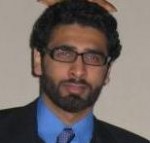
What Muslims in the West can learn from Jews
Muslims and Jews have a lot in common. Maybe we should stop hating them and start taking notes.
“Muslims in America have to start taking the route of our Jewish brothers and sisters, and they need the help of the latter to make it happen.”
This suggestion comes from acclaimed American Muslim author, academic and Harvard Divinity School graduate Reza Aslan. He was speaking at Columbia University.
Last November, two of Columbia’s largest student organisations, Hillel and the Muslim Students Association, came together to jointly host the event “Re-evaluating Park 51: Islamophobia and Anti-Semitism”. The event was held in recognition of the negative and oft-times bordering malicious (read Fox News) coverage of the Muslim YMCA-like community center ‘Park-51’, a few blocks from (but not at) Ground Zero. Professor Aslan was called in to link the persecution of Jewish immigrants to the US in the late 19th and early 20th centuries and its resonance with the defamation of Islam and Muslims in America today.
Discrimination: what Jews and Muslims have in common
The Jews who immigrated to the US were faced with persecution and discrimination from all sections of America. From politicians to business tycoons like Henry Ford - many people, like the family of my friend Raphael Pope-Sossman, had their last name changed and Christianised (hence the aptly named “Pope”) to escape.
Catholic immigrants were another minority that faced similar discrimination. When Kennedy was running for President, he was slandered on two accounts, for not wearing the hat and for having more loyalty to the Pope than the constitution of the United States. While both Catholics and America’s Jewry had to work very hard to achieve it, with time both these minorities were able to embed themselves well in the American state and society. In the early 20th century for instance, Harvard University President Lawrence Lowell tried to impose quotas on Jewish admissions to the University, and by 2001 Harvard had appointed Larry Summers as its first Jewish President.
What should Muslims in the US do?
How should Americans bring to an efficacious end the discrimination against them?
There are the usual suspects of working hard, attaining very high degrees of education and setting exemplary personal standards in their lives. After all, Pew surveys show that Americans who know just one Muslim personally have a dramatically less negative view of Islam.
But it is the arts that are an all-important prong of changing this discourse. When Harvard Professor Joe Nye coined the phrase “soft power” he meant it in the context of states. However, the concept can easily be used as one for communities, ethnicity or religion based. The arts provide an excellent platform to achieve wide acceptance due to their ability to lift people or entertain them.
The creators of Batman and Superman were Jewish, and today there is no 15-year-old (and many 50-year-olds) that has not been at some point obsessed with these superheroes. Similarly when you wear a Ralph Lauren gargantuan Polo shirt, or a pair of Calvin Klein slacks you experience genius designer wear from two designers who happen to be Jewish. It is, therefore, imperative for Muslims to increase their presence in the various fields of the arts. There is much we can learn from our Jewish peers.
Anti-Semitism is as bad as Islamophobia
The label of “anti-Semitism” has become one of the worst kinds of xenophobia one can ever be accused of. The linking of Islamophobia with anti-Semitism is essential to make sure that Machiavelli concoctions of all on-partisan vendetta based elements against Islam can be effectively brought to an end. There is good movement in this direction, and the greatest defender of Park-51 has turned out to be New York’s Jewish mayor Michael Bloomberg, tear-fully pleading for it to be allowed to be built. It is now up to both sides to in the words of Nixon “cease the moment”!


COMMENTS (18)
Comments are moderated and generally will be posted if they are on-topic and not abusive.
For more information, please see our Comments FAQ